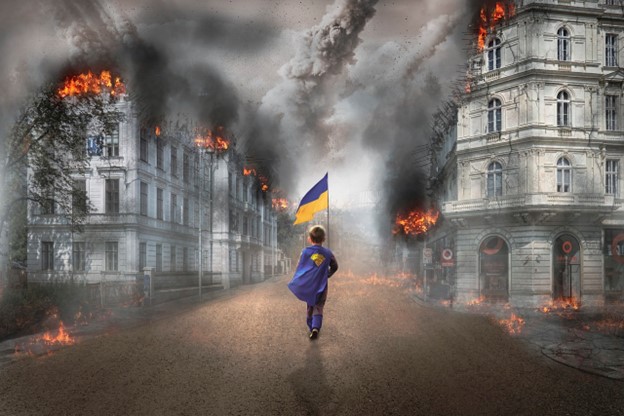The world has turned upside down so many times in the last few years that many political analysts studying Russia say they have lost track of which way is up. There is one area, however, in which there does appear to be consensus in Washington. The war in Ukraine appears to be approaching a significant turning point as Putin faces mounting domestic problems along with an extended stalemate on the battlefield. Although the Russian president boasts about victories on the frontlines, the current state of the war against Ukraine belies a different reality.
Recent Russian military actions in Avdiivka, in the Donbas region, suggest a level of Kremlin desperation not previously seen in the war. The Biden Administration released a declassified intelligence assessment last week that estimated Russian troops killed and wounded in the attacks on the Ukrainian garrison in Avdiivka stand at around 13,000 personnel. Pavel Baev, of the Jamestown Foundation, says that despite the challenges of war Putin remains “defiantly confident” that his forces are making progress.
The Rossiiskaya Gazeta reports that Putin made his first campaign trip in 2024 to the Far East to boast about what he labels as his military successes and to highlight economic improvement in a very depressed area of Chukotka, in easternmost Russia. Many cities in the region remain without electricity or heating in subzero temperatures common at this time of year. Moscow also lacks adequate heating and electricity as the war continues to disrupt life in the capital city.
The Siberian paper suggests openly that the local population was “not assured” by Putin’s statement that Moscow residents were also suffering from the cold without access to heating and electricity. Another local publication says the administration’s attempt to show that candidate Putin was physically strong enough to brave the cold simply “failed.” Political cartoons appeared in Russia media soon after the trip showing local agricultural products, including tomatoes and cucumbers, with Putin’s surname after them. Commenters mocked the Russian president saying a “Viagra formula” was used on the greenhouse cucumbers due to the 12 below zero temperatures so that when Putin touched them, they came to life. “Moscow’s struggle with providing adequate heating and electricity for its population points to Putin’s increasingly dubious attempts to pretend that his war in not coming home to ordinary Russian and disrupting their everyday lives,” according to Paul Goble in the Eurasian Daily Monitor.
Putin’s messaging is contradictory, says Baev. The failed attacks on Avdiivka proved that time is not on Russia’s side. Similarly, missile attacks aimed to prove its air superiority had limited success. Most were intercepted and none caused any critical military or economic damage.
Ukrainian president Zelensky is addressing a panel at the World Economic Forum in Davos this week. He is expected to discuss his propositions for a “peace formula” to rehabilitate the European security system. The Kremlin says there is no point to talk peace without Russia’s input. Baev says a shift in the balance of power is coming and it will be determined by three key changes. The first he points to is the European Union’s (EU) decision on additional aid for Ukraine (estimated to be $54.53 billion) and maintaining investment to increase the production of artillery shells. Second, the US Congress still faces a controversial vote on a complex aid package that amounts to $61.4 billion in military support. Finally, it appears more time may be required to channel frozen Russian financial assets, estimated at around $300 billion, to support and reconstruct Ukraine. Sources in Moscow suggest that Putin is increasingly nervous as he has little control over whether the US will move forward with confiscating and repurposing the funds, although most of the money resides in European banks. The EU will most likely decide how to proceed after its June parliamentary elections.
Putin’s strategy to date is to create a deep chasm among Western states to reduce their support for Ukraine. Kremlin propaganda teams are working overtime this month advocating for a reduction in Western funding, while also attempting to hide the depth of economic stress in Russia during a period when its military already is operating at full capacity.
“Each of Putin’s strategic designs for crushing Ukraine has failed, and it is highly probable that, as the war nears it three-year-mark, the Kremlin will miscalculate the degree of Western fatigue and discord,” says Baev. Ukraine remains determines and the West is standing behind Zelensky. The combination could spell major trouble for Putin’s war effort this spring at home and on the battlefront.
Daria Novak served in the U.S. State Department
Illustration: Pixabay
